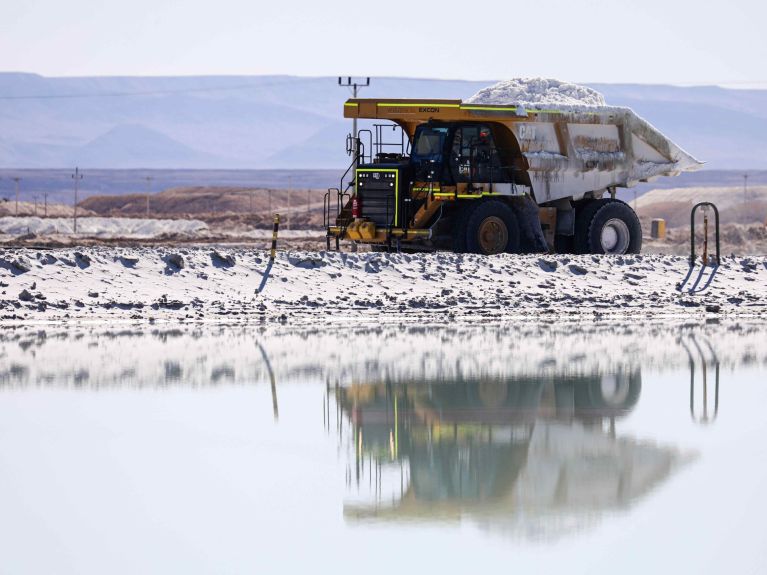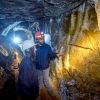Wide-ranging partnerships
Germany is strengthening partnerships worldwide with a view to obtaining raw materials sustainably and for a wide range of benefits.

Germany is not resource-rich itself - which is why it has a particular interest in trading with partners who are able to supply it with essential raw materials. Germany’s raw materials partnerships are about more than just its own interest in lithium, rare earths and other resources, however. “The goal of the cooperation is to adopt a holistic approach that also focuses on the needs of the mining countries,” explains a white paper entitled “Paths towards a sustainable and resilient supply of raw materials” published by Germany’s Federal Ministry for Economic Affairs and Climate Actionin 2023. The partnerships are an integral part of the German government’s overarching raw materials strategy, which is based on the three key pillars of sustainable supply: domestic resources, imports and recycling. We take a look at three of Germany’s raw materials partnerships and what makes them special.
Chile: bringing about the energy transition together
During a trip to Chile in January 2023, German Chancellor Olaf Scholz emphasised his objective of expanding Germany’s longstanding raw materials partnership with this South American country. Chile is particularly important on account of its considerable lithium resources, which are needed for example to further develop electric mobility. When Chilean President Gabriel Boric visited Germany in June 2024, Scholz stressed in Berlin: “To achieve the environmentally friendly and sustainable extraction of lithium, closer scientific exchange between the research institutions of our two countries is planned. This is a milestone on the path towards the energy transition.”
Mongolia: Cooperation on research too
Mongolia’s rich resource deposits likewise make this Asian country an important partner for the energy transition: its copper reserves can be used in the production of electric cars, while the rare earths neodymium and praseodymium are needed for wind turbines. A raw materials partnership has already been in place between Germany and Mongolia since 2011; in February 2024 this was followed up by a broad strategic partnership between the two countries. The raw materials sector also plays an important role in this partnership. Among other things, the German-Mongolian Institute for Resources and Technology in Ulan Bator is to receive further support.
Australia: expanding clean technology
In 2017, Australia and Germany entered into a cooperation on energy and raw materials in whichclimate action is becoming increasingly important. The two countries are currently planning a joint project aimed at identifying the value adding potential of critical raw materials in their industries. Among other things, the “Australia-Germany Critical Minerals Supply Chains Study” is to provide insights into how minerals could contribute to clean energy technology.


